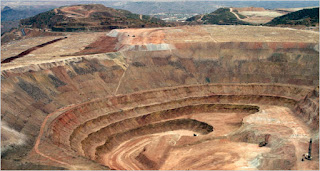Republicans and Democrats! One of the enjoyable aspects of
being only loosely associated with either party is the objectivity you enjoy when either is proven wrong. Publicly wrong, reported in the news media wrong, wrong
at great length through speech after speech and even election platform speeches. Just phenomenally wrong!
As we approach the fiscal cliff, the score is perhaps about even. Deregulation of the banking industry, fighting over the debt ceiling, silliness goes back a ways.
I remember when the Dems thought
recycling paper would make all the difference for the world’s forests. Almost zero impact, actually; maybe even a
little negative effect in the final analysis.
Recycling paper consumes energy, of course. More than you’d like to hear about. Well-managed forest regions can support the
paper industry much more efficiently, and burning paper instead of oil can produce energy with virtually no waste for the landfills. It's now an expensive part of our culture.
For the GOP,
their assertion that global warming was a myth turns out to be a little less
than half right. Climate change is now
visibly underway even though the actual results are still somewhat in question.
In the 90’s, I recall hearing a Republican friend scoffing
at the 0.1 degree change per year and casually dismissing all the associated
science. And too, I remember all the left-leaning
college crowds chanting the ‘recycling’ mantra in the same decade; fun stuff. And digital media will bring an end to paper
consumption. That worked out really
well.
The left's ‘Limits of Growth’ we’ve been told about are less
concrete than suspected. Based on
projections from the 70’s, we were supposed to run out of aluminum, gold,
copper, mercury, natural gas and oil, all before now. The world should have ended, or at least
fallen apart.
We adjusted and adapted, of course. We’ve discovered more of everything or
changed what we use. Mercury used to be
the backbone of the battery industry, but consumption is down 98% now
as other technologies emerge.
Did you know we were supposed to run out of copper a few years back? Known reserves were around 280 million tons
when the prediction was made. Since
then, we've produced 400 million tons, and we’ve discovered new reserves of copper (about 700 million tons so far) faster than we’re consuming the
existing reserves. Not bad.
Reserves of everything really are finite, of course. We can't just consume. As humanity, we’ll have to adjust and adapt. Some of the changes will be fairly large, I suspect, but spreading them across decades has softened the expected blow considerably. Is there a 'black swan' event in our future? :) National debt? Wall Street greed? Healthcare? Recession? Free vs fair trade? We'll adjust, of course.
Perhaps the bigger question for us in the western world is whether we’ll do our adjusting at the expense of others or for their benefit. Wealthy folks (and wealthy countries) adapt (1) because they must and (2) because they can afford the
cost. The poor are often left
behind.
It's most painfully evident perhaps when minor disturbances provoked in the marketplace of the wealthy cause massive upheaval on the far side of the world.
So, Republicans and Democrats ... how have we done so far?

Which of the two leadership groups and philosophies do you think might understand the
impact of their choices on the world’s poor?
Either of them? Trickle down didn't, every child wasn't, we couldn't, Wall Street stole it with government assistance, and the gap widens, nationally and internationally.
The power contest between the two parties seems to have but little to do with the good of the nation's citizens as a whole, IMHO, and even less the citizens of the world.
























